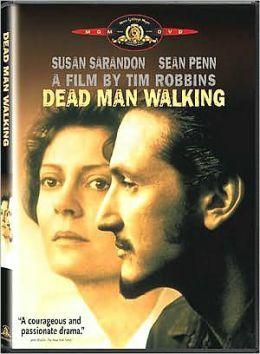'Dead Man Walking' author to speak at Epworth UMC
Author and Catholic nun Helen Prejean, whose "Dead Man Walking" became an Academy Award winning film, will speak in Rehoboth Beach to urge repeal of the death penalty.
Prejean, who also wrote "The Death of Innocents," is slated to appear March 17 at Epworth United Methodist Church. Prejean said she plans to advocate for Senate Bill 19, a bill passed by the state Senate a year ago that has not yet come up for a vote in the House.
Prejean began writing to a death row inmate in Louisiana nearly 20 years ago, befriending the inmate before his execution and also befriending the families of the victims. She chronicled the experience in "Dead Man Walking," for which Susan Sarandon, playing Prejean, won the 1995 Academy Award for best actress.
"What the book is about is the journey I made visiting someone on death row then visiting the victims and seeing the death penalty didn’t change their problems," she said. "I want to raise the question what are we going to do as a society to address some of these problems."
Since writing the book, Prejean has undertaken a nationwide ministry against the death penalty, most recently appearing at a peace through faith conference with the Dalai Lama in Chicago. This is her second visit to Delaware since October.
Prejean said she spends nearly half the year traveling from her home in New Orleans with the Sisters of Saint Joseph to raise awareness and promote activism, striving to show fundamental errors and bias in the use of the death penalty.
Encouraging citizens to approach local representatives regarding this bill, Prejean said, will help finally bring the year-old bill up for a vote and make Delaware the 19th state dto repeal the death penalty.
Prejean argues the costs, racial bias, possibility of innocence, victim suffering and harm to prison workers all demonstrate the system is flawed.
“It is supposed to be that the death penalty is reserved for the worst of the worst,” she said. “Race makes a difference, the status of a victim and who identifies with a victim make a huge difference in deciding the Supreme Court definition of the worst of the worst."
Though most victims of homicide are people of color, Prejean said a majority of death row inmates are minorities, sentenced to die for the murder of white victims.
In Delaware, since 1992 when the death penalty was reinstated, 16 people have been executed, eight of them white. Of 17 men now on death row in Delaware, 12 are minorities.
The Senate bill passed with bipartisan support last year, but it has not come up for a vote in the House although people on both sides of the argument are beginning to push for a vote.
Those who support the death penalty, such as the Fraternal Order of Police, State Troopers Association, Correctional Officers Association, Police Chiefs Council and the office of Attorney General Joseph R. “Beau” Biden, encourage citizens to approach their lawmakers to urge maintaining the death penalty.
If the bill comes to vote and passes, Delaware will join 18 other states that do not impose the death penalty.
The 17 inmates on death row in Delaware will remain on death row, however, as the repeal is not retroactive.
Prejean said she hopes her visit to Epworth will inspire residents to contact their local representatives and especially Speaker of the House Pete Schwartzkopf, D-Rehoboth Beach, to get this long-languishing bill up for a vote.
“It’s all about waking people up and bringing them close to the death penalty. Delaware is one of those states that is close,” she said. “You are real close to abolishing it if you follow the examples of neighboring states like Maryland and New Jersey.”
Sister Helen Prejean will sign books and speak at 7 p.m. Monday, March 17, at Epworth UMC, 19285 Holland Glade Road, Rehoboth Beach. For more information, contact the church at 302-227-7743.
























































